Some statistics about MELPA
LinkFull disclaimer first: I am not a statistician nor well versed in statistics. But I was recently very interested in knowing more about MELPA and how it was used. I did a bit of research, wrote a little data massaging script, compiled data here, and went on to gather a few basic statistics about MELPA.
1First glance
At the time of writing this and when the data massaging script was ran, MELPA had
- 4,548 packages
- 1811 package owners
- 180,821,044 total downloads
2Timeline
The first thing I wanted to know was how many packages were added by year. MELPA started in 2012 and since then its biggest year was 2013 with 755 new packages accepted into the repo. Since then, it has been on the decline.
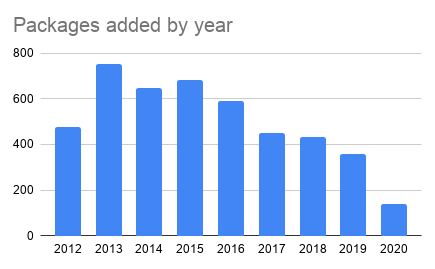
3Sources
No surprises here but over 95% of packages are hosted on github.com.
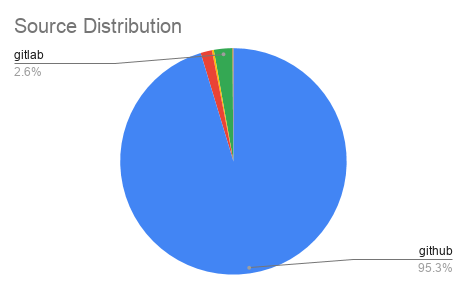
4Downloads
The basic stats are:
- average of 39,908 downloads for a package
- but a median of 1,831 downloads
- with standard deviation of 148,129 downloads
- the package with the fewest downloads was just added and sits at 7 downloads
- the packages with the most downloads is at 2,693,349 downloads
This translates into a very long tail distribution with a huge quantity of packages with "few" downloads and outliers with a very large number of downloads.
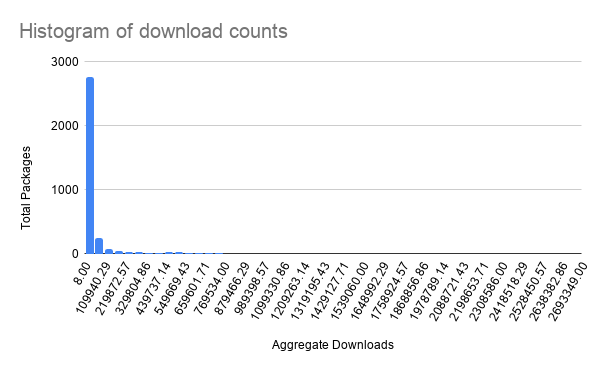
Not very useful. There are definitely fancy ways of representing long tail data but it will have to be for another time.
More interesting to compare is downloads to months since published.
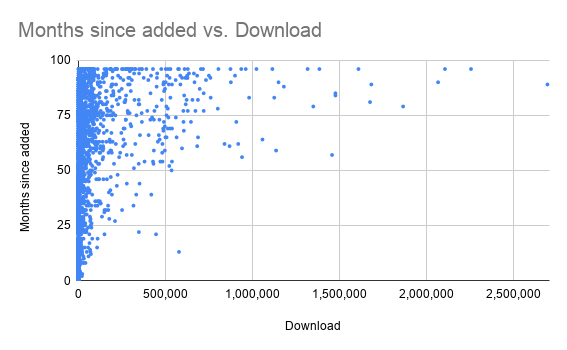
We can see that a lot of packages stay at a relatively low number of downloads over time meanwhile newer packages can reach a large number of downloads quickly.
Without thinking much, I compared the length of a package name to its download count.
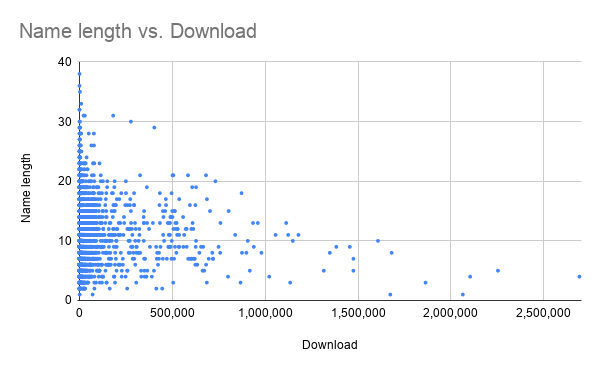
It seems that packages with shorter names get more downloads. My two cents theory is that they are evocative enough or a library with catchy name (ie. dash). On the other hand, packages with very long names can be extensions of extensions like (company-XXX) with more of a niche aspect to begin with.
5Owners
Earlier I mentioned 1811 unique package owners. I was interested in seeing how many packages does one owner have. Obviously it averages to 2.45 packages per owner, but if I break down into buckets of 1, 2, 3, 4, and 5 and over packages I get this:

Which tells us that about 63% of owners published only 1 package to MELPA.
6Further steps
I had quite a bit of fun looking at these numbers. I could foresee going back to the data with different questions. It would also be neat to get information about the code repositories themselves and interact with the github API to get things like total contributors per packages and number of commits.
And who knows, maybe an interactive page to see charts in more details.